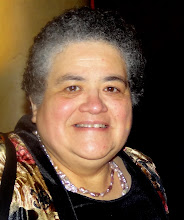
My graduate school mentor at UCLA, E. Bradford Burns, used to say, "History is everything." Coming from the rough and tumble world of social activism, I agreed with Dr. Burns and have often said it to my students. History is often ignored by those who know it, manipulated by others, and avoided by those who prefer to operate as if it didn't exist. But last week, I was forced to look at my perceptions of history in a different way; as Salman Rushdie says, "All ideas, even sacred ones, must adapt to new realities."
I was at Cape Cod at the end of August for a last gasp of summer before the new school year, and I had picked up a book which I thought would be light reading. Robert Pogue Harrison, a professor of Italian Literature at Stanford University, has written Gardens: An Essay on the Human Condition. (Chicago: University of Chicago Press, 2008). His opening paragraph affected me like no other in recent memory. In fact, I am reminded of the eye-opening first line of Tolstoy's Anna Karenina, which I read at the beginning of ninth grade, "Happy families are all alike; every unhappy family is unhappy in its own way," and the insight it gave me, at 13, to my own family.
"Human beings are not made to look too intently at the Medusa head of history--its rage, death, and endless suffering. This is not a shortcoming on our part; on the contrary, our reluctance to let history's realities petrify us underlies much of what makes human life bearable; our religious impulses, our poetic and utopian imagination, our moral ideals, our metaphysical projections, our storytelling, our aesthetic transfigurations of the real, our passion for games, our delight in nature. Albert Camus once remarked, "Poverty kept me from thinking all was well under the sun and in history; the sun taught me that history is not everything." (Camus, 7)--to which we could add that if ever history were to become everything, we would all succumb to madness." (Harrison, ix)
I sat back: Wow. Wow. I had worked and worked on that "hard nut" for years, trying to understand what it was that kept people from reading history. Turning it over in my mind for years; trying to understand why it was that some people avoided news programs, newspapers, and other things that would keep them informed. It had always seemed ostrich-like to me, to stick one's head in the sand rather than face the reality in front of you. I knew, of course, that reality can be daunting to face but better, I thought, to face it and perhaps see the truck coming down the road than to be run over never knowing why. I had never thought about the petrifying effects of being hyper-aware of all the bad news in the world, even though I myself reach saturation points during which I turn off the radio and retreat to my garden.
Now I feel like I was examining one tree at a time for the answer that could only be gotten by looking at the whole forest, and Harrison enumerates them as though naming each tree: "our religious impulses, our poetic and utopian imagination, our moral ideals, our metaphysical projections, our storytelling, our aesthetic transfigurations of the real, our passion for games, our delight in nature." In a word, culture. Already I understand better my delight in my fruit trees and my garden. I can't wait to read the rest of the book. (517)

No comments:
Post a Comment